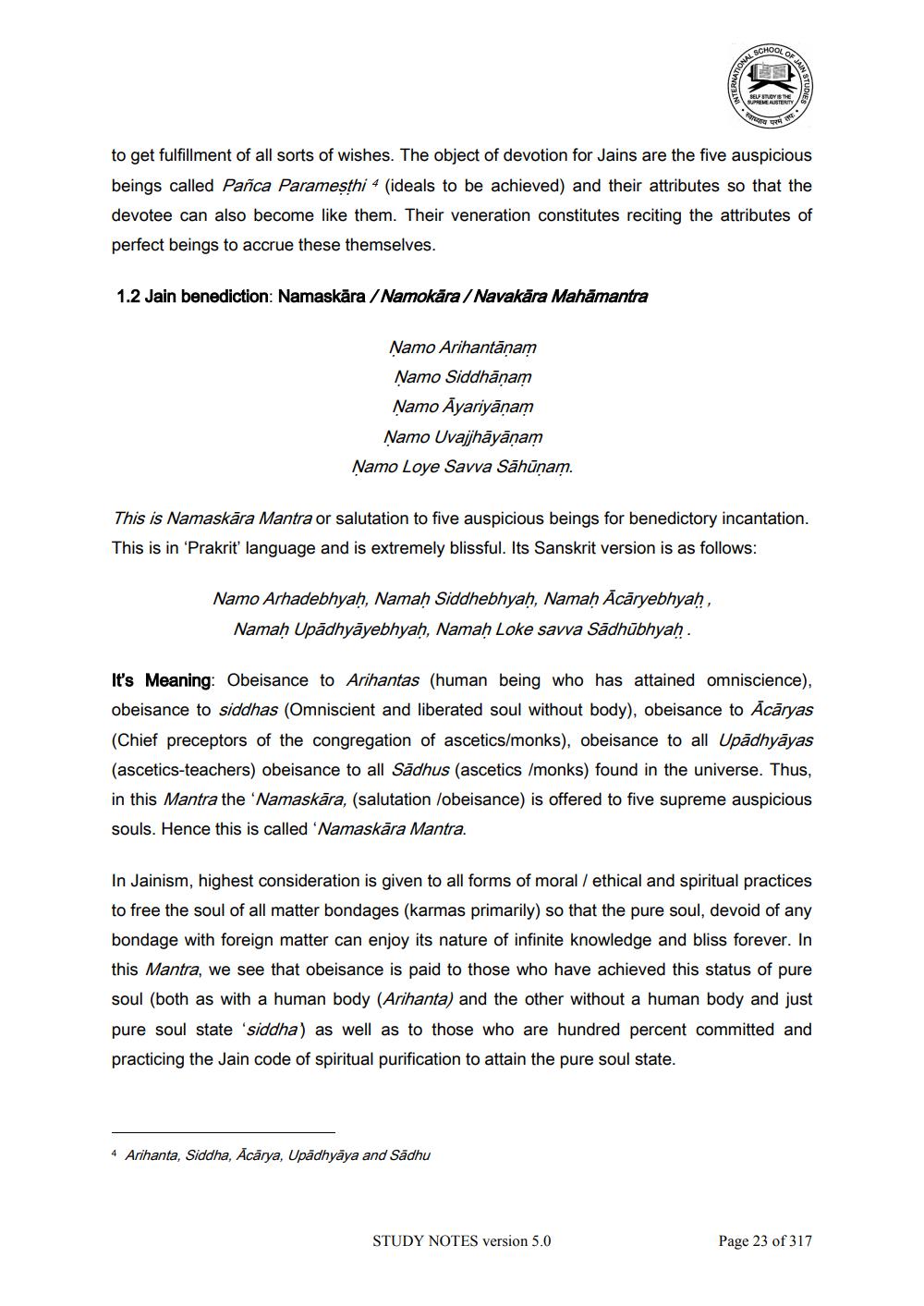________________
to get fulfillment of all sorts of wishes. The object of devotion for Jains are the five auspicious beings called Pañca Paramesthi 4 (ideals to be achieved) and their attributes so that the devotee can also become like them. Their veneration constitutes reciting the attributes of perfect beings to accrue these themselves.
1.2 Jain benediction: Namaskāra / Namokara / Navakāra Mahāmantra
Namo Arihantānam Namo Siddhānam Namo Āyariyānam
Namo Uvajjhāyānam Namo Loye Savva Sāhūnam.
This is Namaskāra Mantra or salutation to five auspicious beings for benedictory incantation. This is in 'Prakrit' language and is extremely blissful. Its Sanskrit version is as follows:
Namo Arhadebhyah, Namaḥ Siddhebhyah, Namaḥ Ācāryebhyah,
Namah Upādhyāyebhyaḥ, Namaḥ Loke savva Sādhūbhyah.
It's Meaning: Obeisance to Arihantas (human being who has attained omniscience), obeisance to siddhas (Omniscient and liberated soul without body), obeisance to Acāryas (Chief preceptors of the congregation of ascetics/monks), obeisance to all Upādhyāyas (ascetics-teachers) obeisance to all Sādhus (ascetics /monks) found in the universe. Thus, in this Mantra the 'Namaskāra, (salutation /obeisance) is offered to five supreme auspicious souls. Hence this is called 'Namaskāra Mantra.
In Jainism, highest consideration is given to all forms of moral / ethical and spiritual practices to free the soul of all matter bondages (karmas primarily) so that the pure soul, devoid of any bondage with foreign matter can enjoy its nature of infinite knowledge and bliss forever. In this Mantra, we see that obeisance is paid to those who have achieved this status of pure soul (both as with a human body (Arihanta) and the other without a human body and just pure soul state 'siddha) as well as to those who are hundred percent committed and practicing the Jain code of spiritual purification to attain the pure soul state.
* Arihanta, Siddha, Acārya, Upadhyāya and Sadhu
STUDY NOTES version 5.0
Page 23 of 317




